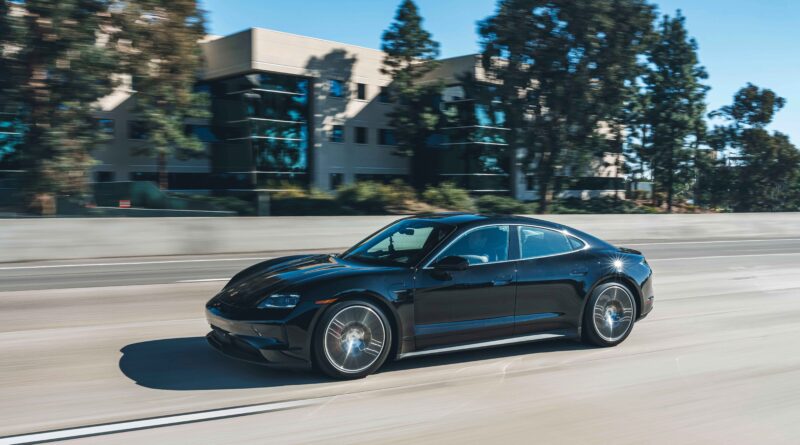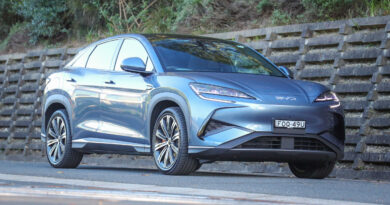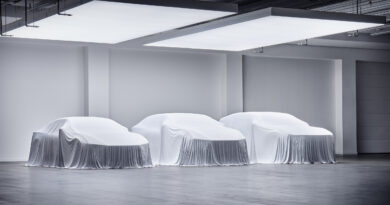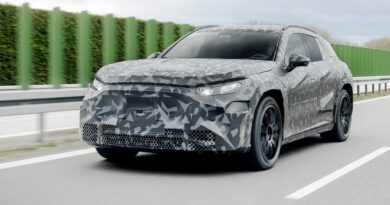Porsche claims 2024 Taycan can travel 587km at highway speeds, then humble hypercars at the ‘Ring
A Porsche USA test has shown how the brand’s facelifted Taycan EV will remain one of the fastest, longest-range and quickest to charge EVs, with seriously flex-worthy numbers.
Ahead of the revised car’s arrival here later in the year, Porsche’s extreme lengths to champion its electric halo have included setting a new Nurburgring lap record for a production EV.
And, despite it being a facelift of an existing model rather than something all-new, has also shown it testing in the snow and driven prototypes around the world in sub-zero temperatures and the baking heat for more than 3 million kilometres.
Latest trick is illustrating just how efficient the Taycan can be.
Instead of publishing token WLTP range figures, Porsche entrusted a small band of journalists – not known for light right feet – to drive the revised Taycan from San Diego to Los Angeles along Highways 405 and 5.
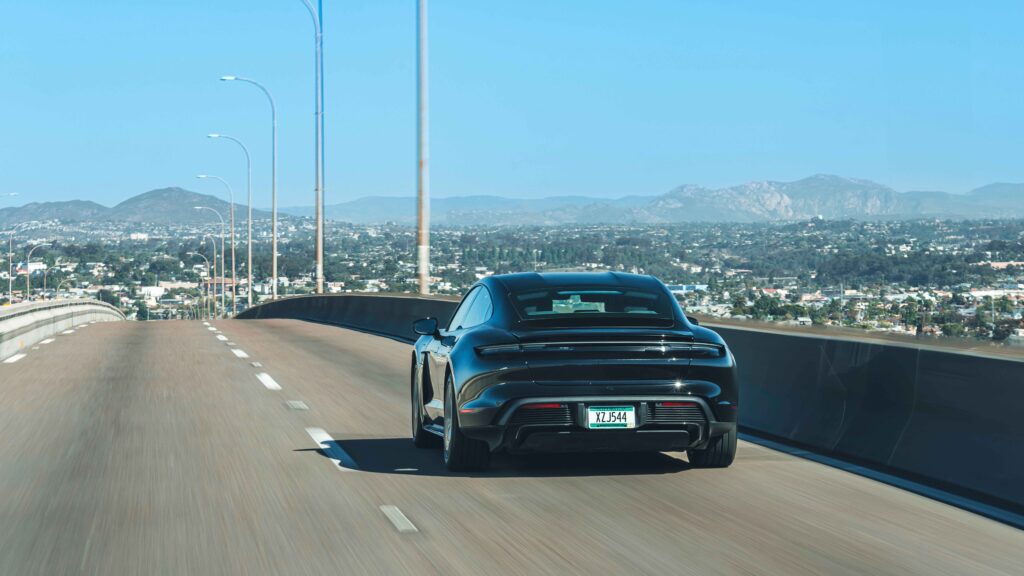
This unscientific test saw the 2024 model cover up to 587km on a single charge, and with no dawdling in the slow lane. Generally, EVs chew through more energy the faster they go, but the test Taycan was driven at energy-sapping speeds up to 120km/h. Proper real world stuff.
Even the weather wasn’t on Porsche’s side, with the experiment carried out in a sub-optimum (for batteries) 15-16C.
So what’s the secret behind the impressive efficiency? Under the Taycan’s mild face-peel – including fresh four-element LED matrix headlamps, revised front bumper, new rims and minor changes to the rear end – there have been extensive hardware changes.
For starters, an all-new Performance Battery is thought to be the same 100kWh power pack as the one fitted to the incoming all-electric Porsche Macan.
That would mean Taycans gain China’s latest CATL batteries, that switch from pouch cells to more compact, energy dense prismatic cells.
Thanks to this new battery composition, the refreshed Taycan can now, in theory, withstand a 322kW charge. But during the real world test, US highway chargers could only deliver a 300kW top-up, with a 10-80 per recharge taking less than 20 minutes.
Some journalists managed to beat even that, claiming a 6-80 per cent charge took just 14 minutes.
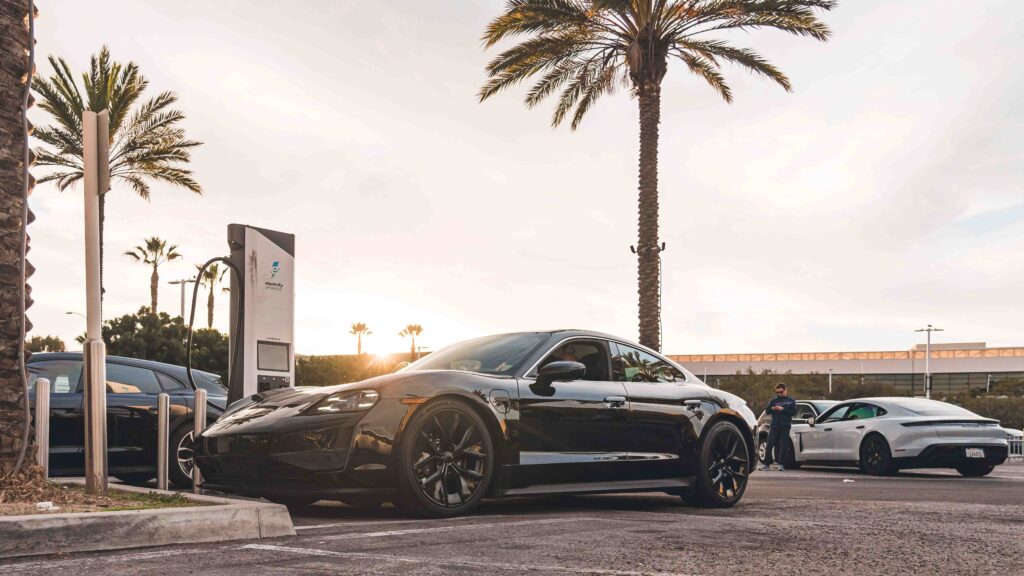
Even though a 322kW charge is still below the 350kW peak claimed by Hyundai’s Ioniq 5, it’s not all about the numbers. Thanks to the Porsche cells’ better cooling, the Taycan batteries charging peak doesn’t tail off as quickly as rivals.
For reference, the previous-gen Taycan could travel up to 505km on the artificial WLTP verified test cycle (with the old Performance battery) and could be charged at up to 270kW.
Commenting on the new real-world highway test, Taycan model line boss Kevin Giek said: “The range test in Southern California impressively demonstrated how efficient the reworked Taycan is.
“We are continuing to focus on our ‘fast travel’ strategy for electric mobility: short charging stops paired with high real-world ranges thanks to efficient drives.”
Porsche will release full details in coming days, along with pictures of the upgraded Taycan.

